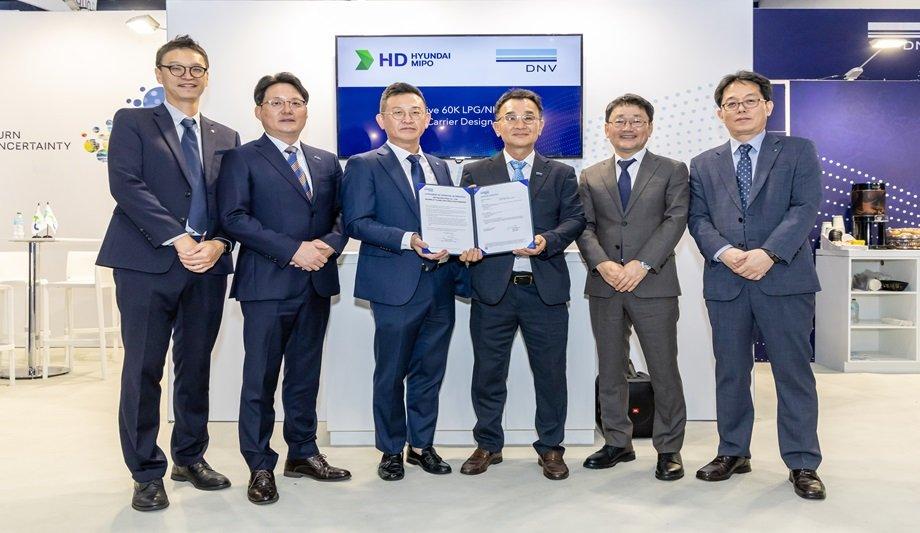DNV has granted Approval in Principle (AiP) to HD Hyundai Mipo (HMD) for their design of a 60,000 m3 LPG/NH3/VCM carrier.
The design addresses the growing demand for Medium Gas Carrier (MGC) vessels and aligns with the industry trend towards larger ships.
LPG and ammonia transport
It also anticipates stricter environmental regulations and an expected rise in LPG and ammonia transport volumes. The vessel maintains the operational characteristics of existing MGCs while incorporating a double hull structure for enhanced collision stability.
Additionally, the innovative trunk deck design increases cargo volume, thereby boosting carrying capacity.
Large Gas Carrier (LGC) cargo capacity
The vessel achieves superior fuel efficiency through optimised hull design compared to existing LGCs
With specifications similar to those of MGCs but with Large Gas Carrier (LGC) cargo capacity, this vessel can access ports designed for MGCs, thereby improving operational efficiency.
The vessel also achieves superior fuel efficiency through optimised hull design compared to existing LGCs, offering substantial CAPEX and OPEX advantages.
Vessel design and operational efficiency
Dong-Jin Lee, Head of Initial Design Division at HMD remarked, "This vessel design represents a new concept in ship design aimed at enhancing operational efficiency and meeting the evolving demands of the gas carrier market."
Dong-Jin Lee adds, "In addition to our present 40K and 45K class MGCs, we can expand our portfolio by introducing a new 60K class MGC and we ensure that it will enhance our position in the market, as a pioneer in the MGC sector."
Enhancing safety and compliance
Vidar Dolonen, DNV Regional Manager Korea & Japan, said, "We are pleased to work closely with HMD, as they bring this advanced gas carrier design to life."
Vidar Dolonen adds, "HMD’s commitment to pioneering new technologies and DNV’s expertise in enhancing safety and compliance have resulted in a design tailored to address the challenges of today and the future. DNV is very pleased that we can continue to build on the strong relationship that we have with HMD, based on a shared vision of trusted, sustainable, and efficient maritime transportation."
Approval in Principle
DNV has verified the ship's stability and structural suitability and has awarded it an AiP. An Approval in Principle (AiP) is an independent assessment of a concept within an agreed framework, confirming that the design is feasible, and no significant obstacles exist to prevent the concept from being realised.












